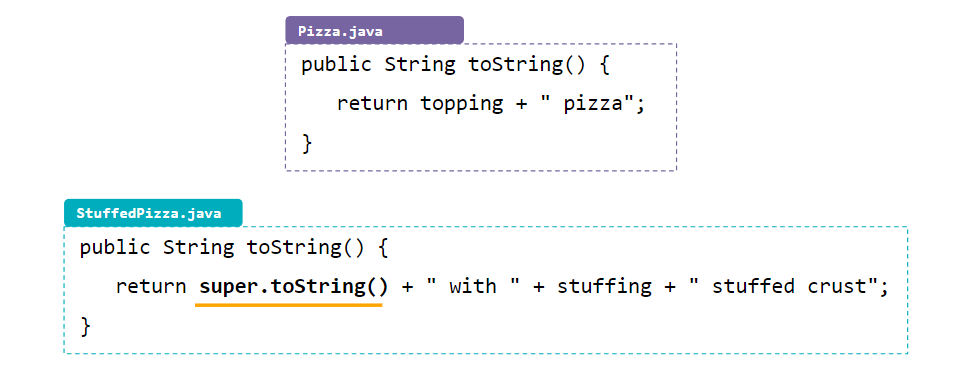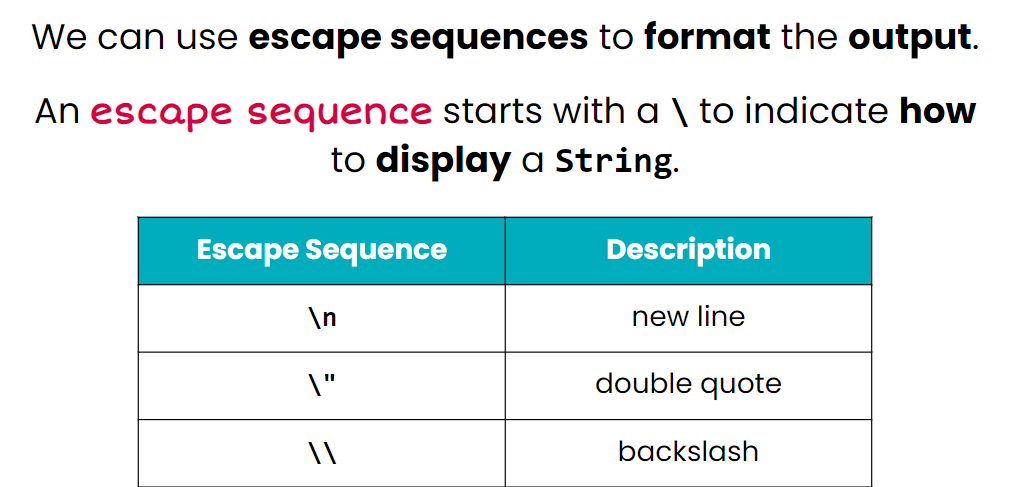AP CSA Unit 2
Class is a programmer-defined blueprint from which objects are created
An object is an instance of a class
Instance variable — variable defined in a class that represents an attribute of an object
Declaring an Instance Variable
private int xLocation;
Private — can’t be accessed outside of the class
Int — data type
xLocation — name for the instance variable
When an object is instantiated, it gets its own copy of the instance variable
Inheritance — when a subclass inherits the attributes and behaviors of a superclass
Access modifier — set the visibility of classes, variables, constructors, and methods
public — visible to all classes in a program
private — visible to only inside the class
Encapsulation — instance variables of a class are hidden from other classes and can be accessed only through the methods of the classes
Inheritance helps in making our code reusable and keeping it DRY
DRY — “Don’t repeat yourself” —> reduce repetition
Refactor code — improve the readability, reusability, or structure of a program without altering its functionality
No-argument constructor — constructor w/ no parameters
Constructor is a block of code that has the same name as the class and tells the computer how to create a new object
How to write a constructor:
public name(){
Constructor signature
Inside the curly braces we write the body to the constructor by assigning values to the instance variables
No-argument constructor often assigns default values to the instance variables
A default value is a predefined value that is used by a program when the user does not provide a value (based on the data type, Java will automatically provide one)
When a constructor is called, it sets the state of the object by assigning values to the instance variables
State — attributes of an object that are represented by its instance variables
Parameterized Constructor — has specific # of arguments to be passed to assign values to an object’s instance variables
public Painter(int x, int y, String dir, int paint)
Overloading — defining 2 or more constructors w/ the same name but w/ different signatures
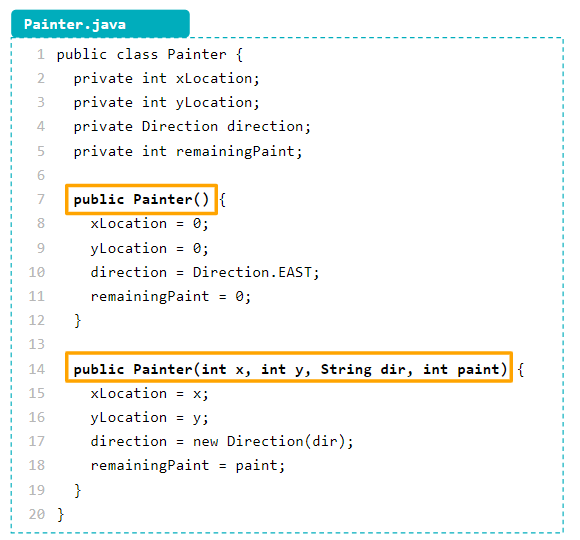
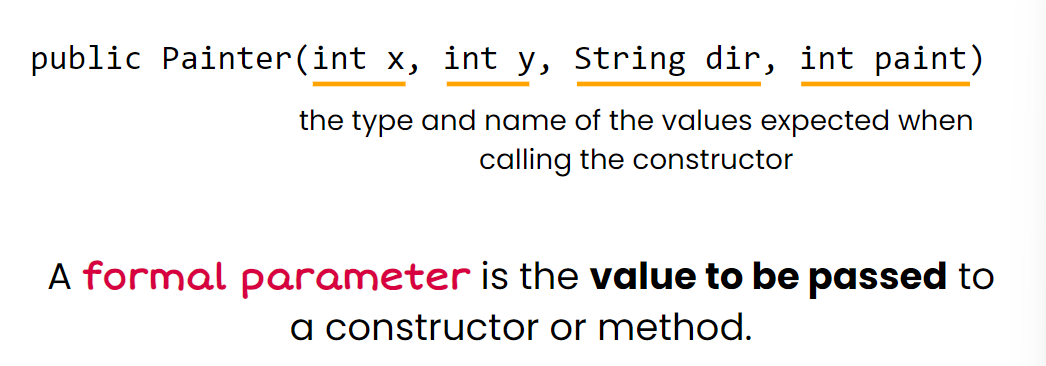
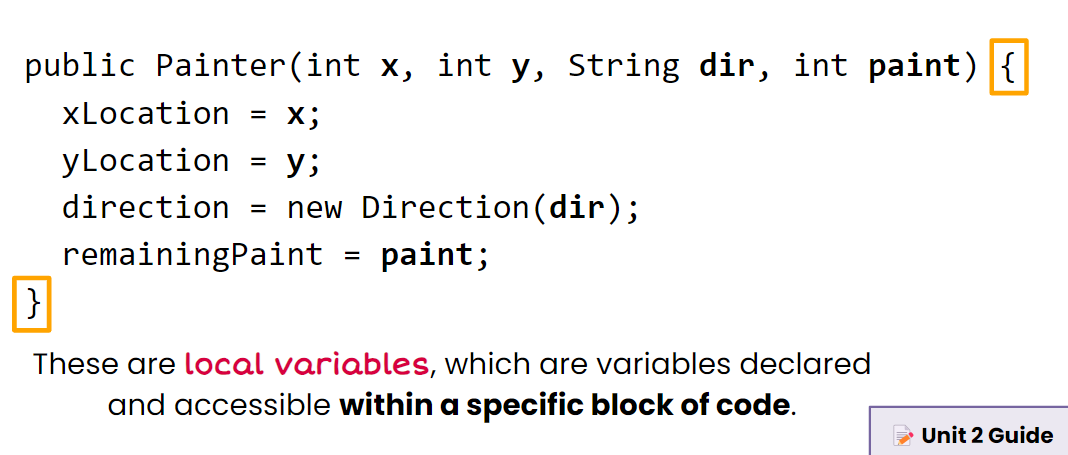
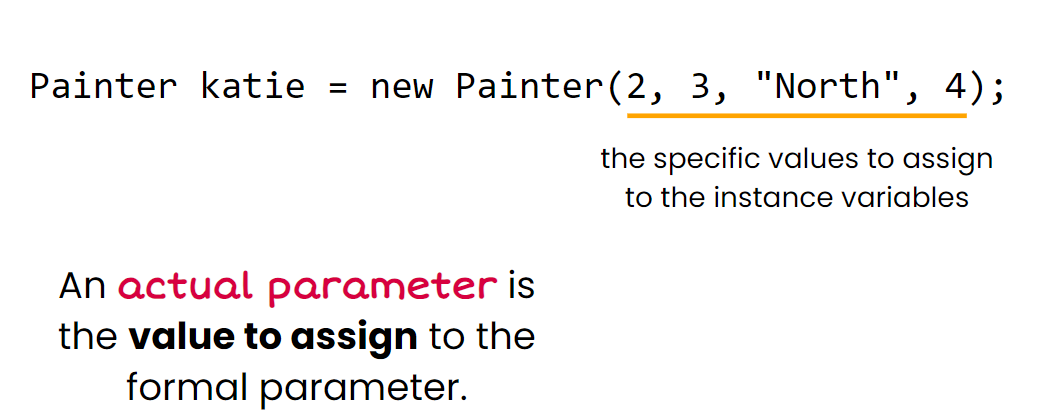
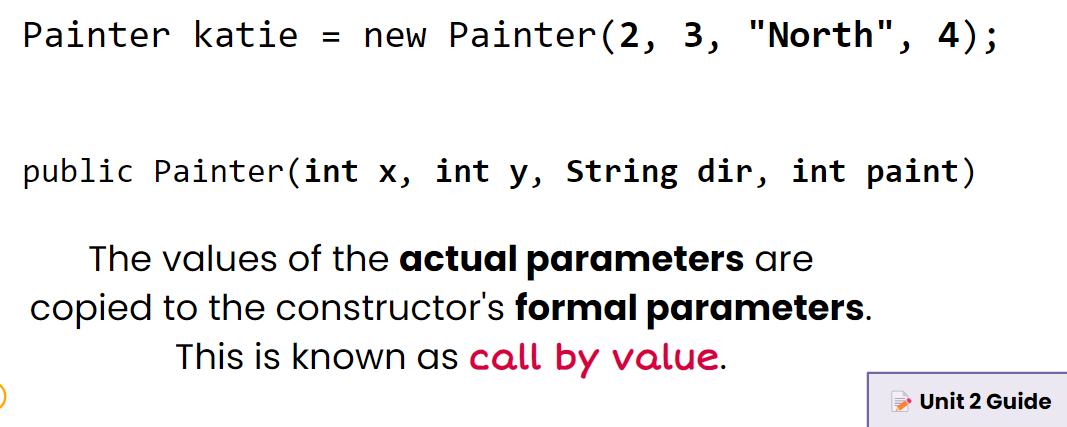
Formal variables are local variables. Local variables are used first. The instant variables are then assigned the default values based on their data types
Scope — where a variable can be used
We can use the this keyword to refer to the instance variables instead of the local variables (refer to current object)

Subclasses inherit the attributes & methods of the superclass but they don’t inherit its constructors!
Subclasses inherit the private instance variables of a superclass, but they cannot access them because they are private
Super — refers to the superclass
Used to call superclass methods & to access the superclass constructor
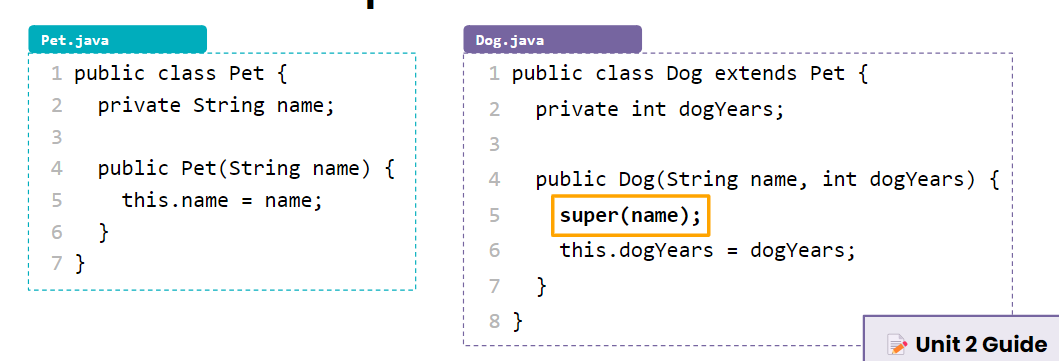
If a subclass doesn’t include super as the first line in its constructor then Java will automatically add a super() call w/o parameters as the first line in a constructor
int score = 125;
Declaring the variable: giving a name & data type to a variable
= Assignment operator —> initialize or change the value assigned to a variable
125 —> starting value —> initializing
Literal —> source code representation of a value, such as a # or text
Primitive type: double, int, boolean
Reference type: data type that contains a pointer to the memory location of an object
At the top of your program, if you want user input, you put : import java.util.Scanner;
Accessor method — gives the value that is currently assigned to an instance variable
How to write an Accessor method:
public int getX(){
return xLocation;
}
Public so it can be accessed from outside the class
Return type is the same as the data type of the instance variable
getX() —> name of the method is typically get followed by the name of the instance variable
Return keyword exits the method and provides the value to where the method is called
Then we specify the instance variable we want to return
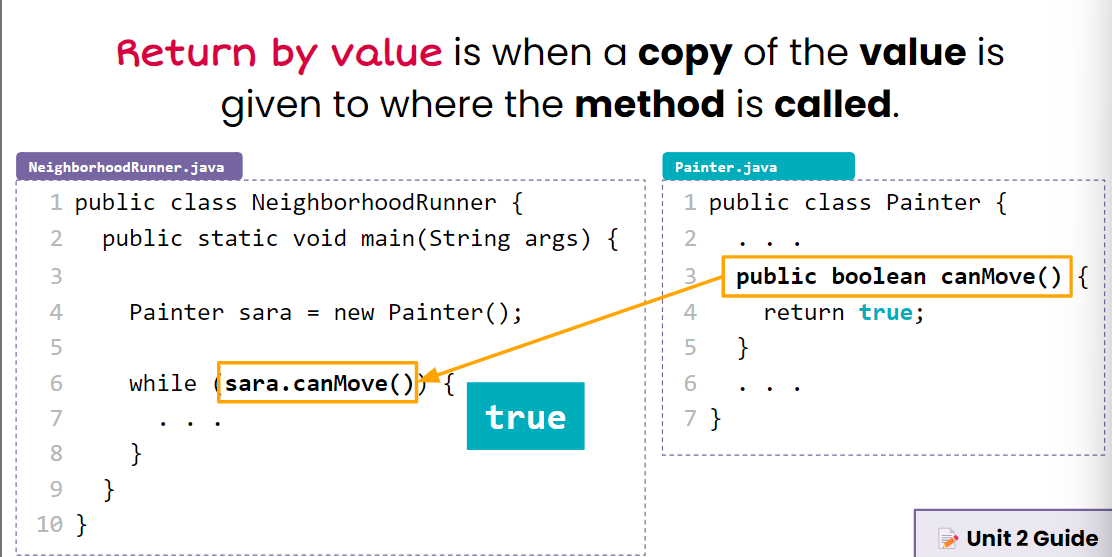
Expression — combination of data & operators that evaluates to a single value
Operand — data that is operated on
Operators can be used to create compound expressions, or a combination of expressions
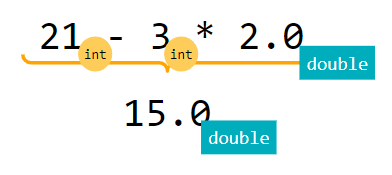
Dividing two int values will result in an int value
The decimal portion is truncated, or cut off
Dividing an int by 0 will result in an Arithmetic Exception
If you try to divide a double by 0, Java assigns the result to infinity
Compound assignment operator: shortcut syntax to perform an operation on both operands & assign the result to the variable on the left

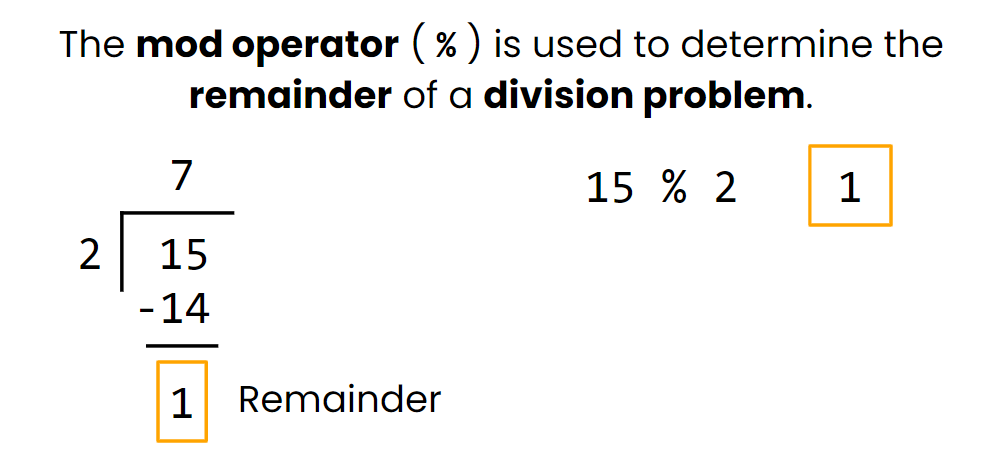
Java evaluates expressions according to its order of operations
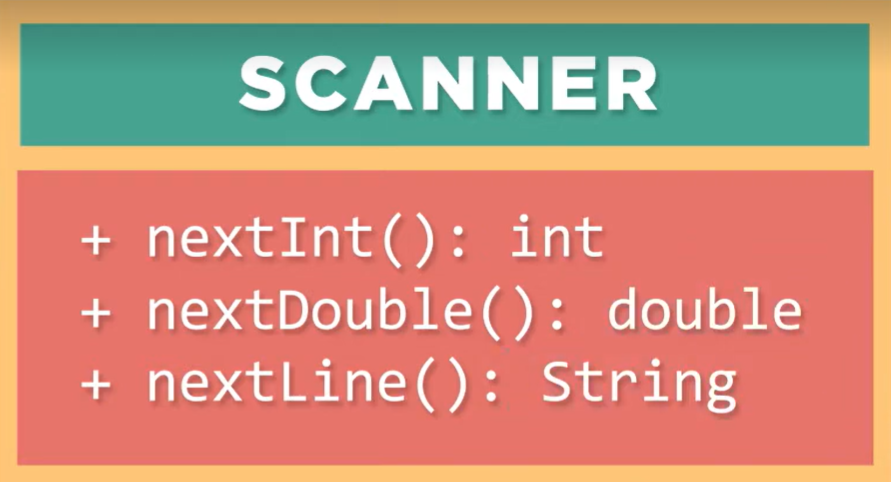


Scanner objects, user input ^^^
Don’t forget to input.close();
Mutator method: method that changes the value of an instance variable
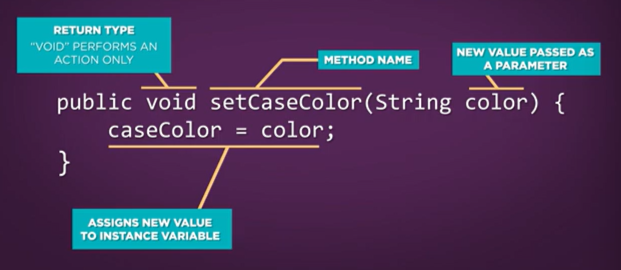
Public so it can be accessed from outside of the class
The return type is void since it doesn’t return a value
The name of the method is typically set followed by the name of the instance variable
Specify a parameter that matches the type of the instance variable
Then we assign the value passed to the parameter to the instance variable
Calling a Mutator Method:
lisa.setAge(17);
When we call the method, we pass the new value to assign to the age instance variable
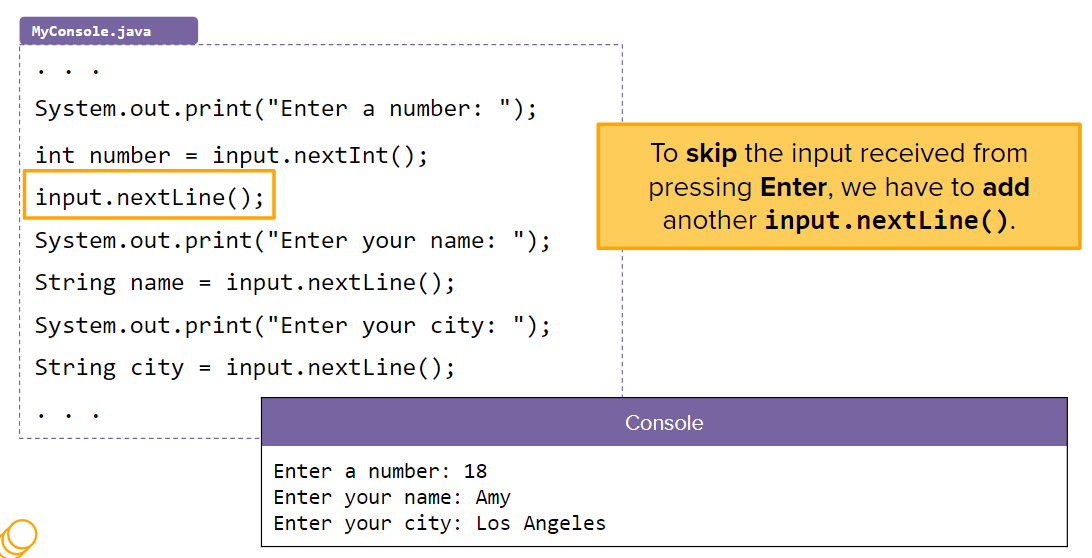
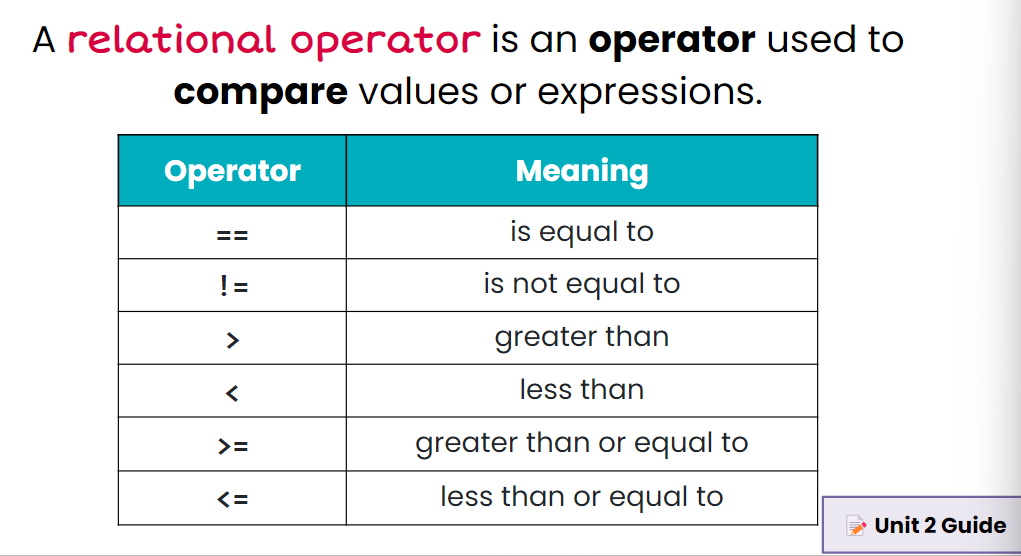
Using relational operators, we can write a Boolean expression, which is a logical statement that gives either a true or false
public String toString() — called whenever an object is printed
The toString() method in the Object class returns a String that consists of the name of the class, the @ symbol, and the hash code of the object

The toString() method is automatically called when an object reference is passed to a print statement or when an object reference is concatenated with a String
To override is to define a method in a subclass with the same method signature as a method inherited from a superclass
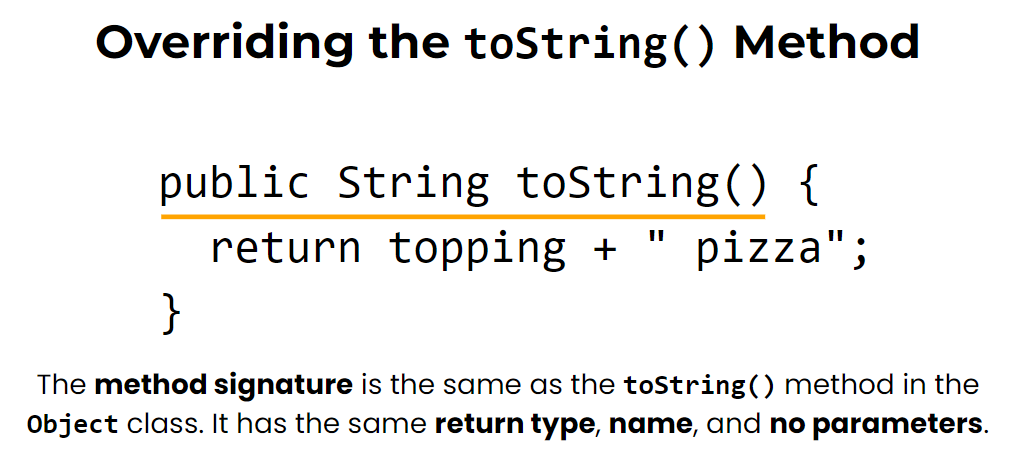
In the body of the toString() method, we return a String that contains information about the object
We can use the super keyword to call the superclass version of a method in a subclass
